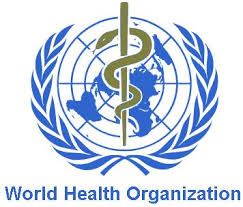The World Health Organisation has issued a new guidance to help third world countries tackle the emerging threat of childhood obesity.
This was contained in a statement signed by Francesco Branca, Director, Department of Nutrition for Health and Development, WHO, on Thursday in New York.
According to the statement, the guidance is also aimed at tackling under nutrition and to halt the growing burden of associated diseases such as diabetes, heart disease and stroke.
According to WHO, more than 75 per cent of overweight children live in developing countries, with the prevalence in Africa almost doubling in the last 20 years.
The statement said that globally, more than 100 million children under five years of age were underweight, while 165 million were stunted.
It also said that an estimated 35 per cent of all deaths among children under five were associated with under nutrition while about 43 million children under five were overweight or obese.
The statement said: “While it is vital to maintain efforts to reduce under nutrition, the world needs to do much more to prevent and care for the growing number of people that are overweight or obese and living in low and middle income countries.”
Branca said to avoid a massive explosion of nutrition problems in the next generation, there was the need for policy makers to give more attention to improving the nutritional status of pregnant women and adolescent girls who would become mothers of the next generation.
To this end, WHO presented a package of 24 essential nutrition actions, which included improving nutrition of pregnant and breast-feeding women and encouraging early initiation of breast-feeding.
Others are exclusive breast-feeding for the first six months, continued breast-feeding up to two years and promoting appropriate solid foods for young children.
Branca said that there was the need for countries to reduce infant and child mortality, improve growth and development, and improve productivity.
It also stated that countries such as Brazil, Ethiopia and Peru, as well as India’s second most populous state, Maharashtra, had achieved a high rate of success as a result of implementing these actions.
The statement added: “A food system that does not deliver a sufficient amount of quality food can lead both to poor growth and to excess weight gain.
“A child who has grown poorly in his first years of life may turn into a short but overweight adolescent and then later in life develop chronic disease as an adult.”
WHO issues guidance to tackle childhood obesity, poor nutrition
Previous ArticleLaide Bakare christens controversial baby
Next Article Pipeline vandalisation: NSCDC arrests six in Ogun


